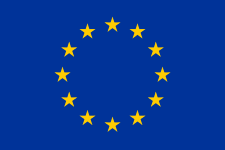 This project has received funding from the European Union’s Horizon 2020 research and innovation programme under grant agreement no. 653390
This project has received funding from the European Union’s Horizon 2020 research and innovation programme under grant agreement no. 653390
| Acronym | IMPROVER |
| Start date | 01/06/2015 |
| Duration | 40 months |
| End date | 31/09/2018 |
| Project coordinator | David Lange, from SP |
| Consortium | 11 partners (research institutes, universities) |
The impact of disasters and crises in Europe is characterised by a highly interconnected society. Due to cascading effects through interdependencies among critical infrastructure systems the indirect consequences of natural and man-made disasters may be more severe than expected.
Economic and insured losses from great natural catastrophes such as earthquakes, hurricanes and floods have increased significantly in recent years. Economic losses from natural catastrophes increased from $528 billion (1981-1990), $1,197 billion (1991-2000) to $1,213 billion over the period 2001-2010. There has been a shift in recent years – not only in policy and technological analysis but also on the political level, including the EU - in focus from increasing the protection of critical infrastructure to ensuring the resilience of critical infrastructure.
The overall objective of IMPROVER is to improve European critical infrastructure resilience to crises and disasters through the implementation of resilience concepts to real life examples of pan-European significance, including cross-border examples.
The improvement will arise through the development of a methodology for implementing combinations of societal, organisational and technological resilience concepts to critical infrastructure based on risk evaluation techniques and informed by a review of the positive impact of different resilience concepts on critical infrastructure.
IMPROVER is aimed at developing European Resilience Management Guideline and demonstrating it through pilot implementation.
All public results can be found here.
Critical Infrastructure is an asset, system or part thereof located in Member States which is essential for the maintenance of vital societal functions, health, safety, security, economic or social well-being of people, and the disruption or destruction of which would have a significant impact in a Member State as a result of the failure to maintain those functions.
Resilience is the ability of a system to continue providing some basic functionality when exposed to some external extreme accidental action and / or to recover quickly from the effects of such an incident. It is a complex construct of multiple resilience concepts which may be organisational; societal or technological in nature.
Resilience concepts are features of critical infrastructure; the way that the infrastructure is used within society; or features of the disaster planning methodology, which contribute in some way to the overall resilience of the infrastructure. In the proposed project we will study technological, organisational and societal resilience concepts; and evaluate their contribution to the overall resilience of the infrastructure.
 This project has received funding from the European Union’s Horizon 2020 research and innovation programme under grant agreement no. 653390
This project has received funding from the European Union’s Horizon 2020 research and innovation programme under grant agreement no. 653390